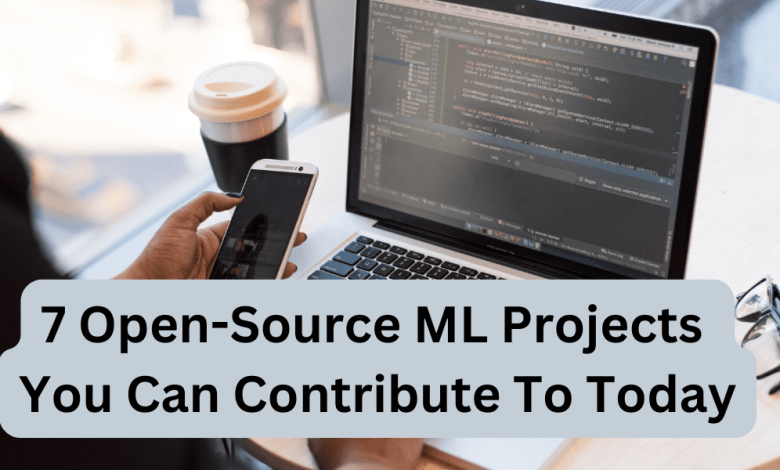7 Open-Source Machine Learning Projects You Can Contribute To Today

7 Open-Source Machine Learning Projects You Can Contribute To Today
Image by Author | Created on Canva
Are you a machine learning enthusiast looking to level up your skills? If so, contributing to open-source machine learning projects is one of the best ways to improve your coding skills.
When you work on open-source ML tools, you’ll learn more about how ML frameworks work internally. You’ll also get to improve your coding practices, debugging skills, and become familiar with large codebases.
In this article, we’ll go over open-source machine learning projects you can start contributing to—one meaningful PR at a time!
1. Scikit-learn
Scikit-learn is the go-to library for machine learning in Python. From machine learning algorithms to feature engineering, selection, and hyperparameter search, scikit-learn suffices for most machine learning projects.
You can contribute to improve core functionalities in different modules, help improve algorithm implementations, docs, or work on new features.
Getting Started: You can head over to the Scikit-learn GitHub repository to find beginner-friendly open issues and start contributing.
2. Hugging Face Transformers
Hugging Face’s Transformers library is the go-to tool for natural language processing. With Hugging Face, you can download and fine-tune pre-trained models for almost any NLP task.
Contributions can include improving model implementations, support for new features, or working on integrations. You can also help with documentation and tutorials.
Getting Started: Visit the Hugging Face Transformers GitHub repository, read through the contributing guidelines, and grab a good first issue to work on.
3. Optuna
Finding the best hyperparameters for machine learning models is important to ensure good model performance. But hyperparameter search can be quite expensive computationally. Optuna is an automated framework for hyperparameter search.
You can use Optuna with common frameworks like PyTorch, TensorFlow, and Scikit-Learn. You can contribute to integrations, bug fixes, and improvements.
Getting Started: Explore the Optuna GitHub repository to go over the list of available issues and get started.
4. MLflow
MLflow is an open-source MLOps platform. With MLflow, you can track experiments and manage multiple models.
If you’d like to learn more about the end-to-end machine learning cycle, you can try using MLflow. You can contribute to a range of functionalities—artifact stores, model registry APIs, and more. Getting Started: Visit MLflow’s GitHub repository to find issues and learn how to contribute.
5. OpenCV
OpenCV is a popular open-source Python library for computer vision. You can use it for almost all image processing and computer vision tasks. Besides basic image processing tasks, you can use it for object detection, real-time image and video processing, and more.
If you’re interested in computer vision, OpenCV is a must-know library. So once you’re comfortable, you can try to go deeper and contribute to the library if you have strong C++ skills. Else, you can also choose to improve the docs.
Getting Started: You can sift through the open issues—categorized by labels—in the OpenCV GitHub repository.
6. TensorFlow
TensorFlow is a super popular open-source machine learning framework. If you’ve worked on machine learning or deep learning projects, you’ve probably used tools and libraries from the TensorFlow ecosystem.
To go beyond and contribute to TensorFlow, you can help by improving the documentation, contributing to bug fixes and feature improvements.
Getting Started: Visit TensorFlow’s GitHub repository to see where you can contribute. Go over the list of good first issues to start with small contributions.
7. PyTorch
PyTorch is another popular open-source library. It’s loved both by developers and the machine learning research community.
If you’re interested in deep learning and have strong Python and C++ skills, you can try contributing to PyTorch. You can contribute—by improving existing functions, tensor operations, or docs—to a range of functionality.
Getting Started: You can head over to the PyTorch GitHub repository to start contributing.
Wrapping Up
Contributing to open-source machine learning projects is a practical and effective way to enhance your coding skills while giving back to the community.
So whether you’re working on algorithm optimizations, adding new features, or improving documentation—working on open-source projects can help you grow as a developer.
So choose a project that aligns with your interests, start contributing, and watch your coding skills improve. Happy coding!



